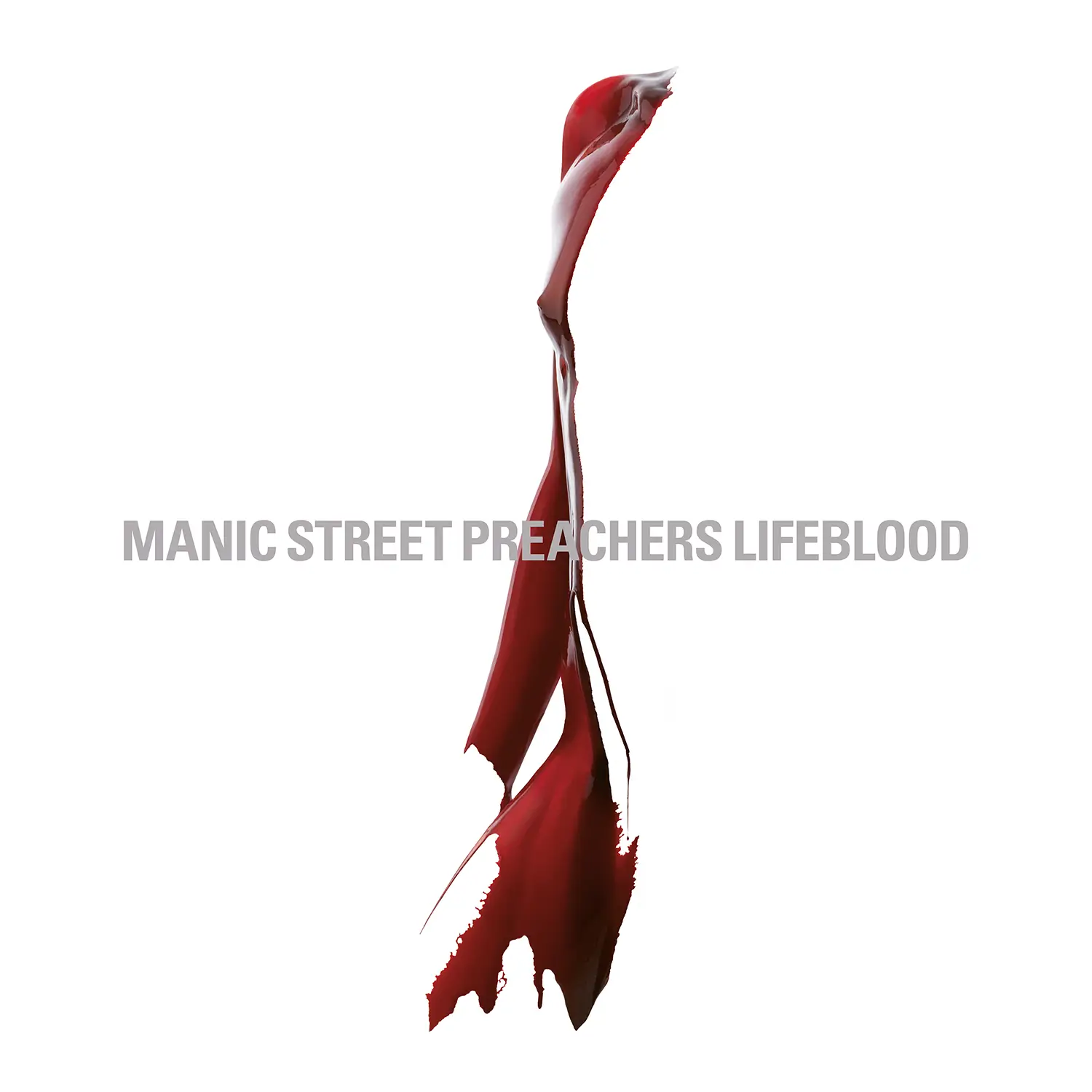News
Manic Street Preachers - Postcards From A Young Man
4 StarsGrowing old gracefully? Of course not: it’s the Manics growing old the only way they know how. In style.
That was a mighty quick turnaround, guys. No sooner had we started wondering what Manic Street Preachers were up to, after they’d gone quiet for a while, than out of nowhere, an album appeared, announced scarcely a year after the thrilling and unique return to form that was ‘Journal for Plague Lovers’: the smallest gap between Manics albums since their early days, when ‘Gold Against The Soul’ surfaced sixteen months after their bloated but promising debut ‘Generation Terrorists’.
Eighteen years later, the promise has been delivered on many times over. For every career high (‘The Holy Bible’, ‘Everything Must Go’, ‘Journal’), however, there have been misfires (‘This Is My Truth, Tell Me Yours’, ‘Send Away The Tigers’) and a brace of crushing disappointments in the form of the directionless ‘Know Your Enemy’ and the lifeless ‘Lifeblood’. Knowing how inconsistent the trio can be, fans are wondering which of the three categories their tenth record ‘Postcards From A Young Man’ fits into. We can tell you, with utmost certainty, that it’s there in the first bracket.
Bands don’t often get to their tenth album without disappearing up their own backsides at least once, so credit must be given to the Manics for not following this path. Some of you may beg to differ, but we’re of the opinion that, at worst, at their nadir in 2004, the Manics were merely terribly misguided. When they fell, they fell hard, and they very nearly didn’t get back up again, but last year’s raw-as-hell ninth album (with Steve Albini on production, natch) provided them with just the spark they needed.
At its best - and there are very few songs here that fail to hit their mark - ‘Postcards’ is reminiscent of ‘Everything Must Go’ in just about every way imaginable. Whereas ‘Journal’ was pretty much literally just guitar, bass, drums and vocals (only the heart-rending closer ‘William’s Last Words’ deviated from this pattern, adding lush strings into the mix), the tenth album is packed fit to burst with flourishes. Strings parts crop up in quite a few places, like on lead single ‘(It’s Not War) Just the End of Love’, a song which sounded mediocre on its own, but works rather effectively when placed in album context. We can even forgive bassist Nicky Wire’s completely unnecessary vocal contribution.
The title track is ‘A Design For Life”s younger brother: same time signature, same lush orchestration, a chorus that is equally as massive. What’s more, it works brilliantly, (unlike ‘Indian Summer’ which sounds like a second-rate take on what many consider their best song), with Wire in typically defiant mood: ‘This life, it sucks your principles away / You have to fight against it every single day’ … ‘This world will not impose its will / I will not give up, I will not give in’.
This is followed by a song that should be remembered in years to come as one of the group’s finest moments. ‘Some Kind of Nothingess’, whilst it may hint at the anguish expressed by Richey Edwards on ‘The Holy Bible’, is nowhere near as bleak as its title suggests, though it’s not exactly all sunshine and roses either, beginning thusly: ‘The sky has fallen in on you / Crushed any happiness you had’. The entry of a gospel choir for the chorus, as the orchestral backing soars to the album’s highest point, is a moment that tugs at the heartstrings every time without fail.
This is very much a rock record, too, as songs like ‘Auto-Intoxication’ suggest. Such things as nods to The Beatles-esque psychedelica are balanced out with powerful drumming from Sean Moore and frontman James Dean Bradfield yelling at the top of his voice, ‘I am so lucky, I think that I survived’. ‘All We Make Is Entertainment’ is another song that shows the band heading back to their roots: something akin to ‘Australia’ gone glam-rock. Wire’s lyrics bemoan the state of Britain, and in no uncertain terms, either: ‘This country is but an empty shell’.
While he might be on form for most of the record, we all know that the Manics’ lyricist is prone to stumbling (‘Baby, what you done to your hair?’ on ‘Autumnsong’ comes to mind), and it’s no different here: ‘The Future Has Been Here 4 Ever’ (on which he takes lead vocals - was that a groan we heard?) contains one of the best lines on the record (‘Make yourself pretty, just for one last time / No-one will ever know you ever left your prime’) as well as the worst (‘When I start to break free, it calls me back again/ Like ‘The Godfather III’, I never can escape. The gulf in quality is pretty obvious, we think you’ll agree.
The same cannot be said for the album itself, however. Every song here is top-drawer Manics; indeed, the only one that seems to fall even a little short is ‘I Think I’ve Found It’, whose inviting riff fails to rescue it from a fall into obscurity. Then again, sandwiched in-between the wonderfully affecting, piano-led ballad (that incidentally wipes the floor with any of its kin on ‘Lifeblood’) ‘Golden Platitudes’, and ‘A Billion Balconies Facing The Sun’, a stunning track in which known Luddite Wire takes shots at online culture (‘We’ve all become our personal gods / We’ve all become so sad and lost’, it never stood much of a chance of standing out.
‘Postcards From A Young Man’ is a triumphant riposte to Manic Street Preachers’ detractors. It’s a snapshot of a band who are not going to fade away, like so many of their contemporaries did. There’s no doubt in our minds when we say that this is very definitely another career high. Growing old gracefully? Of course not: it’s the Manics growing old the only way they know how. In style.
Read More

Manic Street Preachers and Suede announce UK and Ireland co-headline tour
Tickets are on general sale now!
13th October 2023, 12:04pm

Manic Street Preachers, Razorlight, Baby Queen and more to play Neighbourhood Weekender
They’ll join headliners Courteeners, Kasabian and Blossoms.
15th February 2022, 10:32am

Manic Street Preachers share ‘Complicated Illusions’ video
Lifted from their recently released album, 'The Ultra Vivid Lament'.
8th October 2021, 12:00am

Manic Street Preachers - The Ultra Vivid Lament
3-5 Stars
A requiem, but one that looks for sonic positivity in the thematic darkness.
8th September 2021, 7:54am
With Bob Vylan, St Vincent, girl in red, Lizzy McAlpine and more.








